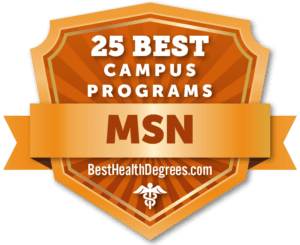
Key Takeaways
- MSN degrees can significantly increase nurses’ salaries and offer career advancement opportunities.
- Many nurses pursue MSNs to become Nurse Practitioners or Nurse-Midwives.
- Traditional on-campus MSN programs offer valuable peer interaction, while online programs provide flexibility.
- Programs are ranked based on alumni salary, graduation rate, job placement, reputation, and tuition.
The best MSN programs provide nurses with more than just a degree, but with the credentials and connections to succeed. The minimum education for nurses is shifting to the BSN. So, a master’s degree nursing programs are one way that nursing schools are helping nurses compete in the job market. Higher Pay is one of the leading reasons why nurses further their education in the Master of Science in Nursing.
These nursing degree programs increase salaries. Nurses with graduate degrees earn approximately $45.00 an hour based on the different career advancements they choose when obtaining the Masters of Science in Nursing. Career Advancement is another reason for pursuing a Master of Science in Nursing. Nurses are able to take on new careers such as Nurse Practitioners and Nurse-Midwives.
Many working nurses opt for an online MSN program. However, the main advantage of a traditional on-campus graduate school is the level of peer interaction in the traditional classroom. The best online MSN programs offer discussion forums and interaction. However, some nurses desire a more hands-on approach to obtaining their degree, working closely with others in their program. The available BSN to MSN programs often also shift directly from one to the other with the same instructors at the institutions.
Our Method: Ranking the Top MSN Programs in the US
To rank the best master’s degree nursing programs, the editors at Best Health Degrees thoroughly searched for accredited, influential nursing schools that have established their reputation as leaders in the field. With our pool in place, BHD editors ranked programs according to five key factors:
- Alumni Salary
- Graduation Rate
- Job Placement
- Reputation
- Tuition
With this data, drawn from College Scorecard, IPEDS, and Niche, BHD focuses on programs that are sure to have a positive impact on graduates’ careers and give them a real return on investment.
1. University of Maryland, Baltimore

When you are looking into an online MSN degree, you will want to consider the University of Maryland, Baltimore MSN. The master’s in nursing degree program prepares students to handle the challenges of leadership in nursing and the changing work environment that arises when working in a technologically advanced medical facility.
A key way the University of Maryland, Baltimore differs from other MSN programs is its concentrations. The school offers three concentrations for the master’s degree program: Informatics, Community and Public Health Nursing, and Health Services Leadership and Management. The options give students a clear focus on their career goals.
Our Favorite Facts: The University of Maryland, Baltimore is ranked in the top 12 by U.S. News and World Report for its master’s degree in nursing.
Degree: online master’s in nursing MSN with concentrations in
- Community and Public Health Nursing
- Health Services Leadership and Management
- Nursing Informatics
Learn more about the MSN by clicking here!
2. University of Pennsylvania

The master’s degree nursing programs at the University of Pennsylvania prepare students for the challenges of their careers. The program recognizes that nursing is an evolving and complex area of study, and teaches students the skills they need to adapt to a changing work environment. It gives you a strong foundation in nursing that you can apply to your career. Penn has an Advanced Specialist program in Nurse-Midwifery and a nursing administration program in Health Leadership and Nursing and Healthcare Administration. In addition, the school offers Nurse Practitioner programs in:
- Adult-Gerontology Acute Care
- Adult-Gerontology Primary Care Nurse Practitioner
- Family
- Neonatal
- Pediatric Acute Care
- Pediatric Primary Care
- Psychiatric-Mental Health
- Women’s Health NP Gender-Related
The way the University of Pennsylvania stands apart from other programs is the world-class medical facilities. Students gain experience from working in the medical facilities during their time at the school and have a chance to learn from renowned professionals in their field of study. That gives you a competitive advantage when moving into your career.
Our Favorite Facts: Students can choose from 11 concentrations in nursing, which gives them the flexibility to focus on specific areas of nursing.
Degree: MSN degree with multiple concentrations
Learn more about the MSN by clicking here!
3. University of North Carolina at Chapel Hill

The University of North Carolina at Chapel Hill offers a BSN to MSN or an RN to MSN program that allows you to obtain your master’s degree in nursing. The school offers five concentrations for nursing students to specialize in specific areas of nursing and prepare for a career that fits their long-term goals. The concentrations allow you to study areas of interest and take on more leadership roles in nursing.
A key way the UNC Chapel Hill stands out is the focus on evidence-based treatment and quality improvements to improve patient safety. The degree program recognizes the importance of a nurse to the health and safety of his or her patients. It also teaches graduate nursing students how to provide quality care.
Our Favorite Facts: The University of North Carolina at Chapel Hill is a research-intensive program that allows students to learn the research skills they need for positions in medical studies and related fields.
Degree: BSN or RN to MSN with 5 concentrations. There is an online MSN in Health Care Leadership & Administration or a hybrid MSN Nurse Practitioner in Advanced Practice Areas (APAs) of:
- Adult-Gerontology Primary Care Nurse Practitioner
- Family Nurse Practitioner
- Pediatric Nurse Practitioner – Primary Care
- Psychiatric-Mental Health Nurse Practitioner
Learn more about the MSN by clicking here!
4. UCLA

The University of California at Los Angeles, or UCLA, offers one of the best MSN programs in the US for students who want to advance in their nursing careers. The school allows students to focus on two potential paths for their careers: nurse practitioner and clinical nurse specialist. When students are ready to take on a master’s degree in nursing, the option to choose different paths based on long-term goals will help them stay focused.
UCLA differs from other schools by offering students five concentrations with two potential forms of advanced practice nursing. That combination of options allows students to develop long-term plans for their careers and stay on task to reach their goals.
Our Favorite Facts: UCLA is in the top 10 percent of nursing schools for clinical work, research, and service opportunities while working on a degree.
Degree: MSN, 5 concentrations
5. University of Virginia

The University of Virginia offers one of the best master’s degree nursing programs for students who want to advance in their careers as a nurse. The school offers 10 concentrations in nursing that give students the flexibility to focus on different areas of nursing. That specialized focus helps students take on leadership roles in specific areas of nursing and prepare for a career that fits their plans.
A key way the University of Virginia differs from other programs is the academic excellence of its programs. Many of their master degree nursing programs rank in the top 20 programs in the nation. The school has a high ranking on U.S. News and World Report for its master’s degree programs and it focuses on excellence in nursing.
Our Favorite Facts: The University of Virginia allows students to gain clinical experience through the UVA Medical Center, which is Virginia’s top-rated hospital.
Degree: MSN, 10 concentrations
Learn more about the MSN by clicking here!
6. Columbia University
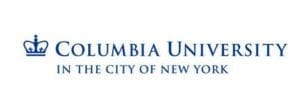
Columbia University offers a Master of Science in Nursing and a Nurse Anesthesia program, or ANES, that allows students to prepare for their careers as a nurse. The degree programs prepare students for their work at a higher level and ensure that students understand evidence-based nursing practices, as well as nurse ethics and cultural competency. The program recognizes that nurses will face challenges with patients from different cultures and ensures that students are prepared to handle the challenges that may arise.
Columbia University differs from other programs by focusing on anesthesia and general nursing practices. It does not offer multiple concentrations in nursing; instead, it takes a broad approach to the process and ensures that students are prepared to handle the challenges of working in a clinical environment. It gives students a strong foundation that they can carry into their careers and into leadership positions.
Our Favorite Facts: Columbia University uses the innovative Masters Direct Entry that allows students to complete their degree in 15 months at an accelerated rate and still understand the important topics to their career.
Degree: MSN, ANES
Learn more about the MSN by clicking here!
7. Boston College
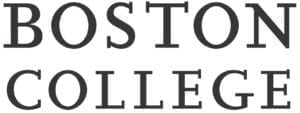
Boston College offers a master’s in a nursing degree program that helps students with their career goals. The MSN program focuses on teaching students the skills they need to work as a leader in their field and advance into more complex roles in their future. The degree program is grounded in the idea that every student and every patient has worth and value.
A key aspect that sets Boston College apart from other programs is its commitment to ethics and thoughtfulness. Students learn the importance of ethical care and giving consideration to their patients. It allows students to act with compassion when working with patients in a clinical setting. It also gives students a clear idea of where to draw the line and how to engage with a medical facility’s policies.
Our Favorite Facts: Boston College offers five concentrations in nursing for master’s level students to gain specialized skills for their careers and future.
Degree: MSN, 5 concentrations
Learn more about the MSN by clicking here!
8. Ohio State University
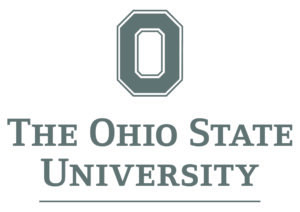
Ohio State University offers students an MSN program that works around their areas of interest and their goals. The school recognizes that nurses want to work in a variety of settings and it takes time to assist with those goals. It ensures that students have access to the education they need to advance in their careers and learn relevant skills while obtaining their master’s degree.
Ohio State University also offers online master’s degree programs that allow students to work on their degrees when they have time. It lets you work around any obligations to an employer or your family members that may impact your schedule. That ensures that you are able to obtain a master’s degree in nursing without adjusting your schedule to fit your education.
Our Favorite Facts: Ohio State University offers multiple paths and concentrations for students who want to obtain their master’s degree in nursing and gain specialized skills.
Degree: MSN, numerous paths and concentrations
Learn more about the MSN by clicking here!
9. Duke University

When you are considering the best options for your master’s degree in nursing, you want to consider Duke University. Their MSN degree programs offer 11 concentrations for students who want to study nursing. That gives students the flexibility to advance in their careers and focus on an area of nursing that fits their personal goals and interests.
A key way Duke University differs from other nursing programs is the variety of programs. The school offers eight advanced practice majors for registered nurses and three programs for non-clinical work in nursing. That variety of options ensures that students are able to find a major that fits their specific goals and interests. It also allows students who are not interested in clinical work to focus on different aspects of nursing.
Our Favorite Facts: Duke University is the #2 graduate nursing college according to U.S. News and World Report, with #1 rankings for Family and Adult-Gerontology, #2 for Pediatric Primary, and #3 for Nurse Administration.
Degree: MSN, 11 concentrations
Learn more about the MSN by clicking here!
10. Emory University

Obtaining your MSN from Emory University allows you to focus on your career objectives as a nurse. The MSN program focuses on giving students the clinical experience they need to provide appropriate care to their patients. The clinical work in a simulated lab ensures that students are able to function well when working with patients and can act quickly when an unexpected emergency arises. Students gain the practice they need to address the concerns of a patient.
The way Emory University differs from other programs is its focus on flexibility. Students are able to work on their degree through full-time or part-time courses. That means students can take as many classes as they feel comfortable taking based on their current situation and lifestyle. The program recognizes that students in the MSN program are likely to work full-time as a nurse and may need to work out a schedule that fits their job and family obligations.
Our Favorite Facts: Emory University offers nine concentrations for advanced practice nurses in its MSN program, which allows students to focus on specific areas of nursing.
Degree: MSN, 9 concentrations
Learn more about the MSN by clicking here!
11. Johns Hopkins University

Johns Hopkins University’s master’s degree in nursing has a reputation for excellence, just like its medical programs. The MSN program takes an interdisciplinary approach to education and ensures that students are able to understand different aspects of nursing when providing care to their patients. It also recognizes that choice is a powerful tool to help students accomplish their goals and it provides options that allow students to focus on their plans.
A key advantage that sets Johns Hopkins University apart is the specialty tracks the school offers to students. The school offers four specialty tracks for nursing students: entry into nursing, health systems management, advanced nursing, and public health nursing. Students are able to focus on their career objectives after evaluating the best option to fit their long-term plans.
Our Favorite Facts: Johns Hopkins University allows students who have an undergraduate degree in a different field to start studying nursing at the master’s level.
Degree: Master of Science in Nursing (MSN) Entry into Nursing Program or a Master of Science in Nursing (MSN) Healthcare Organizational Leadership Track
Learn more about the MSN by clicking here!
12. Vanderbilt University

Vanderbilt University offers an MSN program that prepares students for a rigorous career in nursing. It allows students to accomplish their goals and focus on their plans by providing the education they need to adjust their career. The school allows registered nurses, as well as students who have an undergraduate degree in a different field of study, to learn more advanced areas of nursing practice. It gives students the flexibility to advance in their careers by concentrating on a specific area of interest.
Vanderbilt University offers 14 concentrations for students who want to study nursing at the master’s level. The number of concentrations gives students an opportunity to focus on different interests and gain the skills they need to work in a specialized field. The school also offers modern facilities that help students prepare for the advancements that impact modern medical facilities.
Our Favorite Facts: Vanderbilt University students have a high rate of passing certifications and specialized examinations in nursing after completing their master’s degree.
Degree: MSN, 14 concentrations
Learn more about the MSN by clicking here!
13. Pennsylvania State University

Pennsylvania State University offers a master’s degree in nursing that prepares students to handle the challenges of their careers. The school recognizes that nursing is a changing field of study and that technology impacts the way nurses handle the needs of their patients. The degree program takes measures to help students improve their skills and prepare for their careers.
A key advantage of the program at Pennsylvania State University is the recognition of modern advances and changes that impact nurses in a clinical setting. Students learn about the latest advances in nursing research and practice, as well as the current regulations that apply to their patients. The degree program prepares students to handle the rigors of their work in a medical facility.
Our Favorite Facts: Pennsylvania State University offers five concentrations for students who are looking for an MSN program that fits their career goals.
Degree: MSN, 5 concentrations
Learn more about the MSN by clicking here!
14. New York University

New York University’s MSN program has 12 concentrations, so students have no shortage of options. All 12 concentrations start with rigorous core knowledge. This program prepares students for specialized roles in the nursing world. It also provides preparation for doctoral studies, should students choose that route. Out of all of MSN programs in the US, NYU provides some of the best courses in nutrition and holistic health, so those who want to pursue the whole-person approach to nursing should look into this school.
NYU, of course, is one of the most well-known schools across the US. An NYU degree carries a lot of weight and looks excellent on a resume. The College of Nursing in particular garners a lot of attention. As a matter of fact, it ranks #5 in funding from the NIH. Overall, this school provides one of the best nursing education options in the world. With its challenging academics, diversity, and innovation, NYU has helped plenty of nurses take their careers to the next level.
Our Favorite Facts: NYU makes a great choice for those who want to have a global impact. The results of NYU’s research stretch all across the globe.
Degree: MSN with concentrations in:
- Adult-Gerontology Acute Care NP
- Clinical Research Nursing
- Family NP
- Nurse-Midwifery
- Nursing Administration
- Pediatrics NP Primary Care
- Nursing Education
- Adult-Gerontology Primary Care NP
- Nursing Informatics
- Pediatrics NP Primary Care/Acute Care
- Psychiatric-Mental Health NP
Learn more about the MSN by clicking here!
15. University of California, Davis

The University of California, Davis’s MSN program boasts one of the fastest paths to an advanced degree. Students can graduate in as little as 18 months. In those 18 months, students go beyond the basics of nursing to become leaders in their field. This program doesn’t stagnate. Rather, it consistently takes new research into account. This way, it can provide the most up-to-date education for its students. It also offers some of the most cutting-edge technology in nursing education. The MSN Family Nurse Practicioner professional degree program is full time. The curriculum includes academic courses, clinical skills courses, and also supervised clinical practice in clinical settings.
UC Davis has always been a diverse, research-oriented school. This research means that students employ new ideas in their learning. For nurses, this means that they get used to finding new information and incorporating it into their work. Since the healthcare field grows so quickly, this adaptability makes alumni the ideal nurses for today’s world. At UC Davis, students learn both from their professors and from each other.
Our Favorite Facts: UC Davis offers plenty of high-tech learning spaces, including simulation suites.
Degree: UC Davis direct entry MSN or Master’s Entry Program in Nursing (MEPN), or a MSN Family Nurse Practicioner (FNP)
Learn more about the MSN by clicking here!
16. University of Alabama at Birmingham
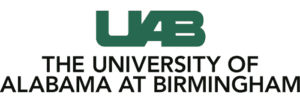
The University of Alabama at Birmingham’s Master of Nursing program offers 12 specializations. Many of these tracks have gained high rankings for reputation. Tracks like Clinical Nurse Practitioner, Pediatric Primary Care Nurse Practitioner, and Clinical Nurse Leader have all gained positive recognition from the nursing community. Whether students want to go directly into a Doctoral degree or if they want to take on more specialized professional roles first, UAB provides a great choice. Since this program takes place in one of the world’s biggest academic health centers, it’s ideal for those who want lots of practical experience.
UAB is an innovative school. It provides top-level technology and other resources. For nursing students, this means access to advanced healthcare tech. Furthermore, UAB has strong research, which puts nurses at the forefront of new knowledge. The Nursing school not only provides some of the best education; it also aims to create a healthier community.
Our Favorite Facts: In 2019, US News and World Report ranked this MSN program as one of the top grad schools for nursing.
Degree: MSN with concentrations in:
- Family Nurse Practitioner
- Adult-Gerontology Primary Care Nurse Practitioner
- Psychiatric/Mental Health Nurse Practitioner
- Adult-Gerontology Acute Care Nurse Practitioner
- Pediatric Acute Care Nurse Practitioner
- Adult-Gerontology Acute Care Nurse Practitioner with Registered Nurse First Assist (RNFA)
- Pediatric Primary Care Nurse Practitioner
- Dual Pediatric Acute and Primary Care Nurse Practitioner
- Neonatal Nurse Practitioner
- Women’s Health Nurse Practitioner
Learn more about the MSN by clicking here!
17. University of Miami

The University of Miami’s MSN program combines practical and theoretical studies. Students get lots of hands-on experience here. By the end of their studies, nurses here have the confidence and skills that they need to take charge. This school has strong academics, but it also has cutting-edge research. With UM’s discoveries, leadership development, and medical aid opportunities, it provides one of the best Master’s Degree Nursing programs.
The University of Miami is a private research school. This diverse, tight-knit community has grown quickly in the last several years. It has used that growth to serve the Florida community. For nursing students, this means lots of opportunities to help and serve others as they grow their skills. It also means becoming a part of a strong and vibrant group.
Our Favorite Facts: Recently, nursing students from the University of Miami provided medical care to communities in Guatemala.
Degree: MSN with concentrations for advanced practice registered nurses (APRNs) in Adult Gerontology Acute Care Nurse Practitioner, Adult Gerontology Primary Care Nurse Practitioner, and Family Nurse Practitioner.
Learn more about the MSN by clicking here!
18. Michigan State University

Michigan State University has an MSN and a DNP program. The DNP program is newer, but it’s just as robust as the MSN program. Since MSU offers several paths to a DNP, it provides the flexibility that a lot of nurses need. These advanced degree programs help nurses gather top-level knowledge for their field. By graduation, they’re fully equipped and ready to take on all kinds of leadership roles. These students learn how to handle deeply complex situations and environments, which makes the MSU MSN program one of the top programs in the United States.
MSU is a widely recognized school. They often lead the way in research and academics. The nursing programs here have brought excellent medical care to Michigan as a whole. The school encourages students to push their limits. By graduation, students are surprised to learn just how capable they really are. With its challenge and opportunity, it’s no wonder why MSU has become a top global university.
Our Favorite Facts: MSU leads the way in Opioid Crisis research. MSU ER nurses are empowered to examine the crisis from several angles.
Degree: master’s in nursing (MSN) with nurse practitioner specialties in Adult Gerontology Clinical Nurse Specialist, Adult Gerontology Primary Care Nurse Practitioner, Family Nurse Practitioner, and Psychiatric Mental Health NP.
Learn more about the MSN by clicking here!
19. University of Rochester

Located in upstate New York, the University of Rochester’s MSN program provides flexibility. The program provides several pathways to an MSN. Faculty and staff here understand that most of their students will also work full time. This program helps students provide the best care for their patients. It equips them to consider several factors at the same time so that they can provide comprehensive care. With accelerated programs and lots of other options, Rochester stands out among Master’s Degree Nursing programs.
Rochester’s research community has been recognized around the world. This research has a direct impact on patient wellbeing. As a result, nursing students get to help make the medical community better and stronger. Between their in-classroom studies and their hands-on training, these students strengthen and sharpen all of their nursing skills.
Our Favorite Facts: US News and World Report has ranked Rochester’s Nursing school among the best. Students here have no doubt that they’re receiving one of the best possible educations.
Degree: MSN, 4 concentrations
Learn more about the MSN by clicking here!
20. University of South Florida
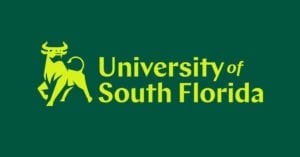
The University of South Florida’s MSN program offers seven concentrations. This program plays an important role in Florida’s healthcare quality. It trains strong, confident nurses who are ready to become specialized leaders. Nurses here perform a lot of clinical outreach hours, meaning that they get to be a part of this overall healthcare impact. Many alumni have stayed in the Tampa Bay area, and continued to serve the southern Florida community. With a strong curriculum and part-time options, SFU is an excellence choice.
FSU takes pride in its healthcare impact. It has made healthcare better both in Florida and around the world. A large part of the impact comes from its cutting-edge, specialized research. This school empowers students to reach their full potential. In fact, students are often surprised to find out what they’re capable of. This school has plenty of resources.
Our Favorite Facts: The Master’s programs at USF’s College of Nursing have been ranked among the top graduate schools in the US.
Degree: MSN with master’s concentrations in:
- Adult-Gerontology Primary Care Nursing (45 credit hours)
- Family Health Nursing (52 credit hours)
- Adult-Gerontology Primary Care Nursing/Occupational Health (62 credits)
- Concurrent MPH/MSN Adult-Gerontology Primary Care Nursing (83 credits)
- Adult-Gerontology Acute Care Nursing (48 credits)
- Pediatric Health Nursing (45 credits)
Learn more about the MSN by clicking here!
21. University of San Diego

The University of San Diego has a great Master’s Entry Program. This program is ideal for those with a non-nursing Bachelor’s degree. Those who want to switch careers get the tools they need from this program. They become eligible for various nurse certification exams, and many become advanced nurses or generalists. Combining clinicals with classroom knowledge, this MEPN provides plenty of challenges. For those who can handle a highly demanding education, this is one of the best Master’s Degree Nursing programs.
USD values excellence and community. Students have plenty of opportunities to learn and explore while forging deep connections along the way. These programs empower students to find challenges and meet them head-on. As a Catholic university, USD blends faith and reason into its high academic standards.
Our Favorite Facts: For nursing students, the Dickinson Nursing Simulation Center provides a fantastic educational experience. This environment simulates real-life medical situations, preparing students for future nursing experiences.
Degree: Master’s Entry Program
Learn more about the MSN by clicking here!
22. George Mason University
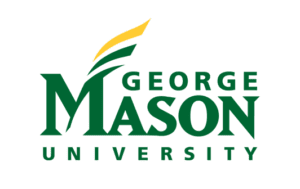
The MSN program at George Mason University prepares students for all kinds of healthcare settings. Graduates go on to work in hospitals, universities, nursing homes, and many more. Students learn how to blend complex ideas into hands-on practices. They also gain the leadership skills that they’ll need in their specialized fields. For those who want to serve a diverse community, the GMU program is a great choice.
George Mason University is Virginia’s largest public research university. As such, it upholds progressive values, innovative resources, and academic excellence. For nursing students, this means that they become equipped to handle a range of diverse health needs. Their motto is simple and embodies the school’s spirit: Freedom and Learning.
Our Favorite Facts: GMU offers some of the best technology and resources. For example, nursing students learn with realistic simulations. They even have a pregnant mannequin that can deliver a baby.
Degree: traditional and online MSN in Family Nurse Practitioner
Learn more about the MSN by clicking here!
23. Loyola University Chicago

Loyola University Chicago’s MSN program offers three concentrations. Though it does require clinical experience, it also offers some distance learning options. Loyola’s nursing programs emphasize service. They prepare nurses to meet the needs of their communities. Since more than 85% of Loyola’s full-time nursing faculty and staff have Doctorate degrees, these Master’s Degree nursing programs provide both challenge and excellence.
Loyola University is a Jesuit Catholic school. Students who want to blend faith and science feel right at home here. Loyola absolutely challenges its students. It also has a strong, tight-knit community. Because of its Jesuit tradition, it equips students to serve others. For nursing students, this means plenty of opportunities to serve communities through medical care.
Our Favorite Facts: Those who want a career boost should look into Loyola Chicago. On average, nursing graduates get hired within two months of graduation.
Degree: MSN, 3 concentrations
24. Marquette University

With seven concentration options, Marquette University’s MSN program provides great choices for its students. These choices include Gerontology, Pediatrics, and Midwifery. This program also has a direct entry pathway for non-nurses. This particular program delivers some flexibility. Students can either learn full-time on campus, or they can choose a hybrid program that combines online courses with in-classroom learning. Either way, with its urban setting and service opportunities, Marquette provides one of the top MSN programs.
As a whole, Marquette University values diversity, excellence, and research. This Jesuit Catholic school also places a high value on service. In fact, students often get to learn through service. Its downtown location means that the campus is thriving and vibrant. Students have plenty of opportunities to take their learning into the broader city. This school’s motto embodies its faithful roots: Be the Difference.
Our Favorite Facts: Marquette is on the radar for research. Recently, a Physical Therapy professor was awarded a $2.3 million grant for stroke research.
Degree: MSN, 7 concentrations
Learn more about the MSN by clicking here!
25. University of Central Florida
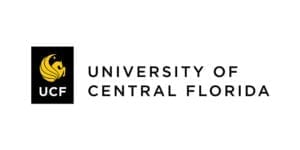
The University of Central Florida’s MSN program has three concentrations. All three options build on a nurse’s foundation of core skills. The program teaches nurses how to participate in research, thrive in a specialized field, and develop leadership skills. Students don’t just study the details. They also study the big healthcare picture, including socioeconomic factors, teaching strategies, and more. For a well-rounded approach to nursing, UCF is one of the best Master’s Degree Nursing programs.
UCF values discovery, especially when it comes to the sciences. Recognized both for its great value and its innovation, this school is a top choice for lots of students. Nursing is UCF’s 4th most popular majors. This school mixes challenge with opportunity, providing a recipe for student success.
Our Favorite Facts: UCF also has a top-notch simulation center for on-campus training.
Degree: online nursing master’s programs with concentrations in nursing and Healthcare Simulation, Leadership & Management, and Nurse Educator.
Learn more about the MSN by clicking here!
Why Should I Get a Master’s in Nursing?
Because the profession is so hands-on, and many desires to advance their career in some way when working on a BSN to master in nursing, they desire equal interaction in the classroom as proper preparation. Clinical experience for some programs may be required, for example, to become a Nurse Practitioner.
Furthermore, an online degree option may not offer that clinical experience in the same way that the traditional on-campus MSN program offers it. The MSN programs that offer both formats of the program are the most flexible. Nursing students can craft their schedule to fit their needs.
What Are Some In-Demand Specialties for MSN Degree?
There are several different in-demand nursing specialties that allow nurses who are pursuing a Masters in Nursing specialties to advance their careers. Below are the most in-demand options. These types of MSN degrees can be online programs or traditional classroom formats.
The Nurse Practitioner (NP) has growing demand and these individuals are able to see patients in the same manner as a doctor, treating them for general disorders, and common diseases. A family nurse practitioner (FNP) is an in-demand specialty for those pursuing a Masters in Nursing. Another is advanced practice registered nurse.
This is the highest specialty that was in demand, as they offer relief in doctor’s offices across the states, seeing patients and prescribing medications to assist with common disorders such as colds, viruses, and infections. Many patients prefer to see these nurse practitioners, as they have more insight, and they also take patients for wellness check-ups, providing a sound medical history.
Common Specialties for a Master of Science in Nursing
Nurse midwifery is one of the most common specialties that are in demand and focuses on both pregnancy and labor. Many new moms are turning to midwives for birth assistance with natural births. Maintaining traditional birth practices and teaching birth classes to couples are essential duties for nurse-midwifery.
The nurse anesthetist can be found on the surgical floor, as they are used for numerous medical procedures within the hospital. The main job duty of nurse anesthetists is to ensure that anesthesia is properly dosed and administered to patients prior to having a procedure conducted.
A nurse educator is another focus area of a master’s in nursing program. Nurse educators teach and instruct other nurses enrolled in a nursing education program. These professionals earn an MSN with a nurse educator concentration or MSN with a nurse educator track.
A nursing administration or nursing leadership degree prepares an individual for a role as a nurse administrator
in a variety of healthcare facilities.
No matter which advancement is chosen with the newfound degree, the nurse will gain respect from their peers based upon their degree level. These nurses are also able to become educators for the local nursing program and lead nursing students into the profession.
What Will I Learn in an MSN Program?
A good graduate program in nursing offers professional development opportunities, develops critical thinking skills, and teaches quality patient care. Clinical experiences are one of the main aspects of master’s in nursing requirements. The MSN program will take previous clinical experiences to the doctors’ offices, where nursing students will interact with the patients in their specialty, and determine the different diagnoses and treatments that are associated specifically in that field. MSN program requirements will not allow licensure in these different socialities until students have moved forward and successfully completed the clinical portion of the online master program.
Skill Proficiency is also one of the main aspects of master in nursing requirements. Current skills are taken and made proficient, especially with patient interaction. Because the interaction in many of these specialties will be more intimate and on a more personal level than an average nursing position in a hospital, these nurses are taught common core courses that enhance these skills. Also, these programs give all MSN students a more in-depth insight into the operations of a practice or smaller facility in areas that are usually reserved for administrators of the facility and their job duties. With this degree, these nurses will be eligible for administrative positions requiring the need for these courses.
Can You Get an Master’s in Nursing Without a Bachelor’s in Nursing (BSN)?
Yes. Students who are Registered Nurses (RNs) with an associate degree can enter MSN online programs for a RN to MSN or ADN to MSN. These programs cover the coursework for the bachelor’s degree and then complete the master’s requirements. The programs are designed to optimize existing education and work experience for a faster path to a MSN.
- RN to BSN to MSN: about 30 months
- RN to MSN: about 24 months
- BSN to MSN: about 18 months
Related:
15 Online MSN Degree Programs
10 Fastest Online MSN Degree Programs
The 10 Most Affordable Online MSN Degree Programs
What Can I Do with a Master’s of Science in Nursing?